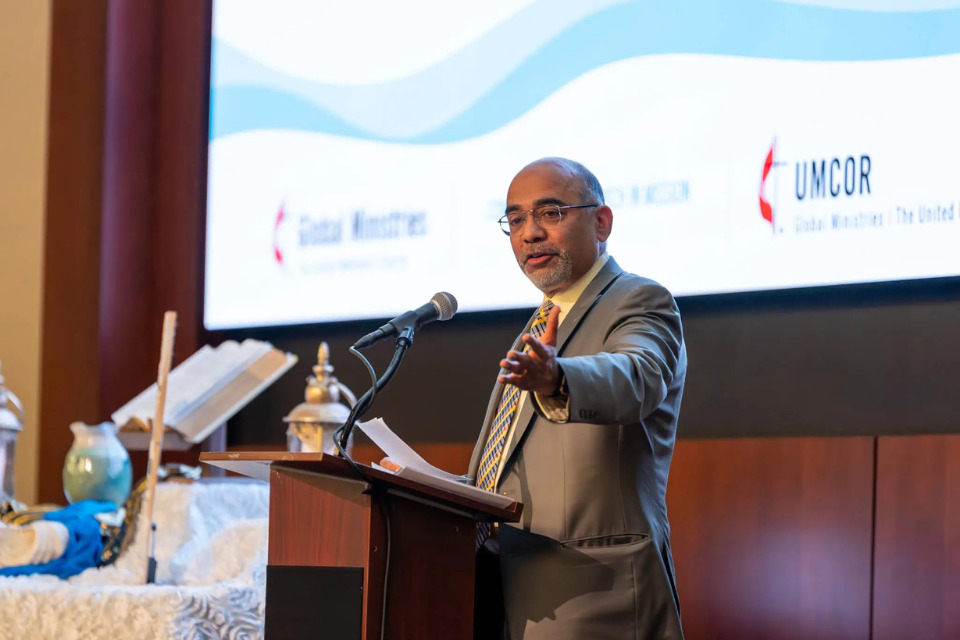Nearly 250 United Methodist mission leaders from 53 U.S. annual conferences met to discern ways to reimagine, reinvent, and reignite mission work in the U.S.
SARA LOGEMAN
Senior Manager of Content and Marketing, Global Ministries and UMCOR
At Global Ministries’ U.S. Mission Partners Consultation, held November 28-29, 2023, in Atlanta, GA, nearly 250 United Methodist mission leaders from 53 U.S. annual conferences gathered to discern ways to reimagine, reinvent, and reignite mission in the U.S.
The event was the final of several consultations in 2023 hosted by Global Ministries, The United Methodist Church’s mission and development agency, as opportunities to deeply listen to and learn from its mission partners. The first consultation was held in April in Mozambique with African partners; a second was held early in August in Atlanta to reexamine practices of missionary sending; and a third was held later in August in Seoul, South Korea, with the Korean Methodist Church.
Faithful Methodists from many levels of the church attended the consultation, from bishops and directors of connectional ministries to racial ethnic ministry leaders and volunteers in mission coordinators. Four members of the Michigan Conference were in attendance: Rev. Dr. Jennifer Browne, Clergy Assistant to the Bishop and Director of Connectional Ministry; Rev. Dillon Burns, clergy member of the Conference Board of Global Ministries; Audra Hudson Stone, Conference Secretary of Global Ministries; and Rev. Robert Miller, Interim Disaster Response Co-Coordinator and Chair of the Disaster Response Team.
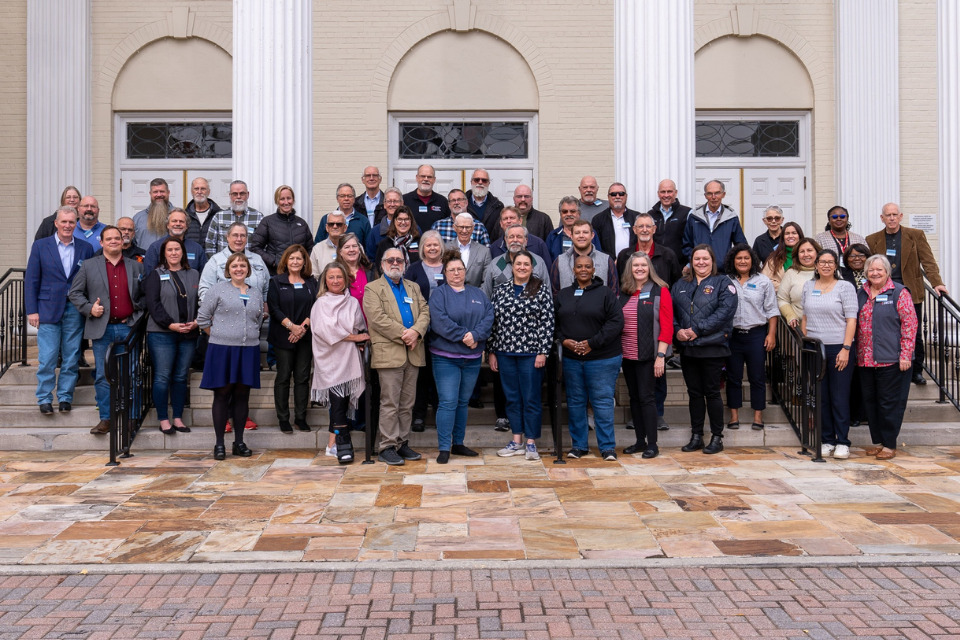
Participants engaged in sessions designed not only to capture the current realities of mission practice in the U.S. but to facilitate a collaborative process of discerning what partnership in mission should look like moving forward. Browne expressed appreciation, “I came away impressed with Global Ministries’ genuine desire to hear from us and their dedication to shaping the agency to serve the conferences and their ministries.”
In his opening remarks, Global Ministries’ General Secretary Roland Fernandes conveyed excitement and hope for the future of mission, “The church is being led to a new focus on mission and meaning, and it is rewarding and exciting to join in God’s mission as the Holy Spirit sweeps us into a new mission age.”
Reimagining Mission: Learning from the Past to Inform the Future
Methodist mission in the U.S. has a vibrant history. Camp meetings, circuit riders, missionary families, and deaconesses and home missioners helped propel the movement of Methodism forward.
And yet, amid the stories of transformation are also stories of harm. Colonialist and racist ideals have influenced the church’s practice of mission, and they still do in many places. Consultation participants deeply wrestled with the question of how to better incorporate values of anti-racism and decolonization into mission at both the local and global levels of the church.
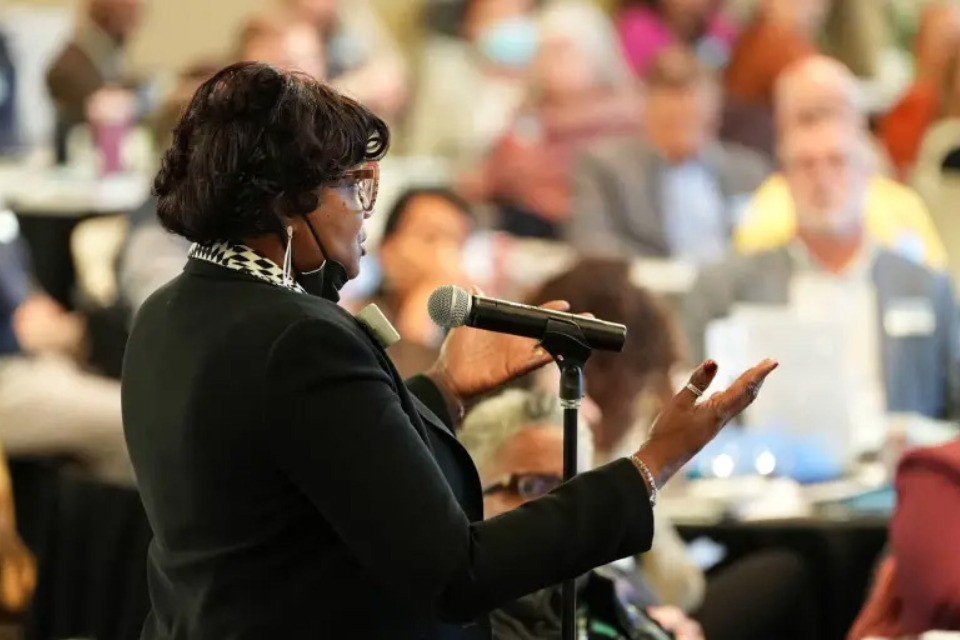
Browne felt the weight of that question during small group conversations among colleagues she helped facilitate. “Each conference has its own characteristics, but it was clear how much we had in common,” she said. “We share concerns about racism, past colonization practices, and diminishing resources. At the same time, we all had inspiring stories of fruitful mission and ministry!”
One way the church moves past its colonialist history of mission as flowing “from the West to the rest” is by commissioning missionaries from the U.S. to serve in the U.S. – as Church and Community Workers (CCWs), young adult Global Mission Fellow US-2s (GMFs) and some Mission Volunteers – living and serving in community, helping to identify and alleviate issues of injustice alongside their neighbors.
Reinventing Mission: Living into New Models
Another major topic of discussion was how to shift from a transactional to a relational model of mission. How can the church’s expression of mission be centered on mutuality and relationship instead of revolving around the exchange of values and goods?
An asset-based approach to communities was discussed as a way forward, a concept that invites the church to see gifts and abundance over need and deficit. In service with others, this demands a posture of humility and acknowledgment of equality as well as a belief that mission is and should be mutually edifying and enriching.
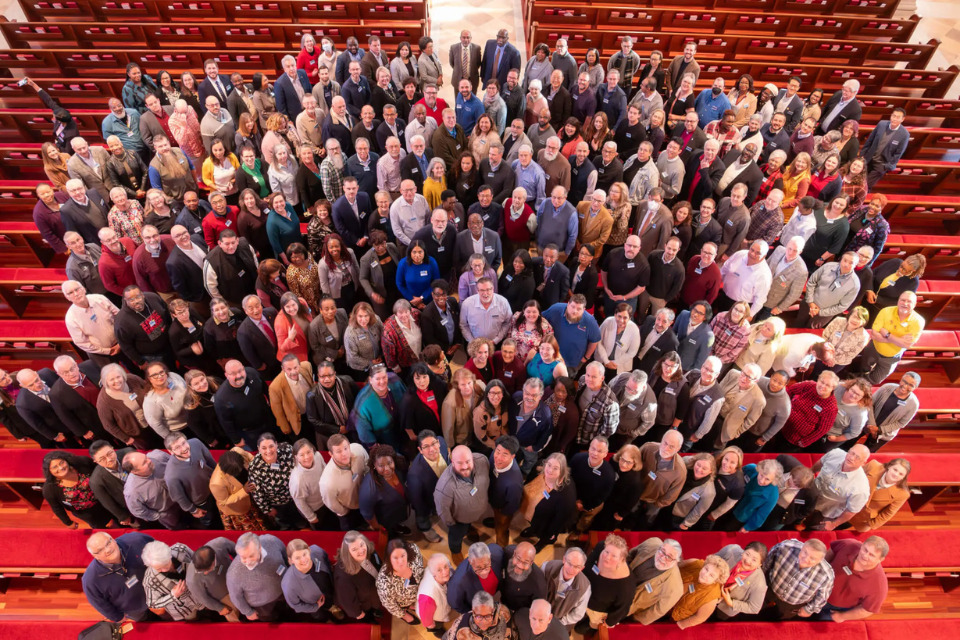
Global Ministries’ work in disaster response, migration, agriculture, and global health, among other areas, relies heavily on the gifts, expertise, and knowledge of its partners. On the continent of Africa, for example, understanding regional contexts and strengthening global connections are key to the success of mission. UMCOR’s disaster management office in Mozambique, overseen by local leaders, is the first line of response to a disaster in that region. And in the area of health care, UMC health boards are staffed by locally trained professionals who are also leaders in caring for their own communities.
As Global Ministries redefines its mission footprint in the U.S., it is focused on models of ministry that begin with mutuality and a greater understanding of local contexts, as well as moving from siloed mission programming to a more strategic and coordinated approach.
Reigniting Mission: A Collective Call
Woven into the gathering’s services of worship was an emphasis on baptism. It served as a reminder that all Methodists are called to participate in God’s mission.
“Offer the fullness of who you are in ongoing life-giving service to the God who has given you life through Jesus Christ,” urged Bishop Gregory Palmer, resident bishop of the West Ohio Episcopal Area, in closing worship.
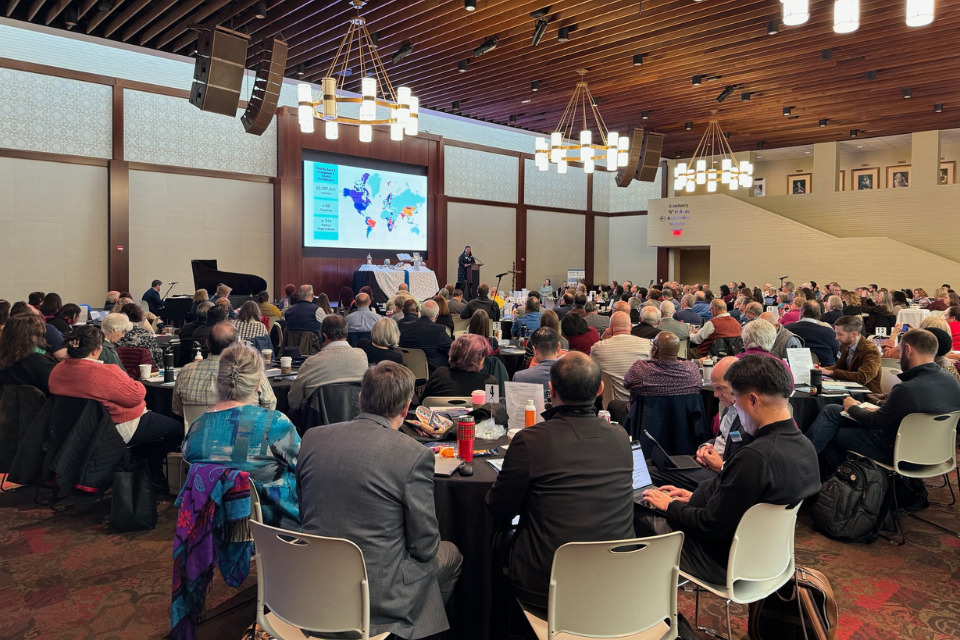
This truth was confirmed in feedback from small group sessions. Conference leaders shared a desire to be better equipped to guide lay and clergy in being missionaries in their own contexts. And cultivate the calling and leadership development of people of all ages, especially young adults, who can uniquely usher in fresh and innovative expressions of mission within the church.
Areas of growth noted by participants included better means of communication and transparent sharing of information, increased awareness of mission activity across U.S. conferences and in global regions, and closer collaboration to avoid duplication of efforts.
At the end of his sermon, Bishop Palmer closed the gathering and sent participants forth with a challenge and an opportunity: “Our entire future relies on our willingness and ability to work together, interdependently.”
James Deaton, Content Editor for the Michigan Conference, contributed to this report.
Last Updated on December 12, 2023

